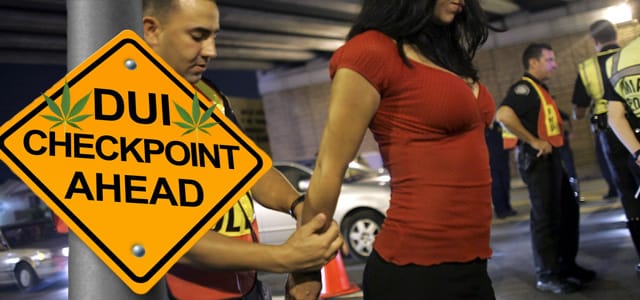 Advanced Roadside Impaired Driving Enforcement (A.R.I.D.E.) is the forefront of drunk driving enforcement in the age of legal and medical marijuana. State Troopers are trained to identify impaired drivers by substances other than alcohol. These officers receive training on Standard Field Sobriety (“FST”) and other field tests, and eye tests involving the convergence, pupil size, and reaction to light as well as methods of determining ingestion of the substance and classification of drugs (illegal and legal) by the type of impairment.
Advanced Roadside Impaired Driving Enforcement (A.R.I.D.E.) is the forefront of drunk driving enforcement in the age of legal and medical marijuana. State Troopers are trained to identify impaired drivers by substances other than alcohol. These officers receive training on Standard Field Sobriety (“FST”) and other field tests, and eye tests involving the convergence, pupil size, and reaction to light as well as methods of determining ingestion of the substance and classification of drugs (illegal and legal) by the type of impairment.

Typically these courses are 16 hours and “train” officers about drugs in the human body, heighten their observation of suspects eyes, and instruct them on seven drug categories and the effects of drug combinations.
Courts are pushing back against the junk science these courses to teach police officers. Courts are limitting the admissibility of field sobriety tests and officer conclusions of impairment based upon drivers “passing” or “failing” a FST.
Commonwealth v. Gerhardt, 477 Mass. 775 (2017) is the first case in the nation to address this issue. In this case the court considered the admissibility of FSTs where a police officer suspects that a driver has been operating under the influence of marijuana. The court observed that the three standard FSTs — the “horizontal gaze nystagmus test,” the “walk and turn test” and the “one leg stand test” — were created to assess motorists suspected of operating under the influence of alcohol. The court found that the tests were developed specifically to measure alcohol consumption as there is wide-spread scientific agreement on the existence of a strong correlation between unsatisfactory performance and a blood alcohol level of at least .08%.
By contrast, the court noted in considering whether a driver is operating under the influence of marijuana, there is as yet no scientific agreement on whether, and, if so, to what extent, these types of tests are indicative of marijuana intoxication. The research on the efficacy of FSTs to measure marijuana impairment has produced highly disparate results. Some studies have shown no correlation between inadequate performance on FSTs and the consumption of marijuana; other studies have shown some correlation with certain FSTs, but not with others; and yet other studies have shown a correlation with all of the most frequently used FSTs. In addition, other research indicates that less frequently used FSTs in the context of alcohol consumption may be better measures of marijuana intoxication.
The lack of scientific consensus regarding the use of standard FSTs in attempting to evaluate marijuana intoxication does not mean, however, that FSTs have no probative value beyond alcohol intoxication. Rather, the court concludes that, to the extent that they are relevant to establish a driver’s balance, coordination, mental acuity, and other skills required to safely operate a motor vehicle, FSTs are admissible at trial as observations of the police officer conducting the assessment.
The introduction in evidence of the officer’s observations of what will be described as “roadside assessments” shall be without any statement as to whether the driver’s performance would have been deemed a “pass” or a “fail,” or whether the performance indicated impairment. Because the effects of marijuana may vary greatly from one individual to another, and those effects are as yet not commonly known, neither a police officer nor a lay witness who has not been qualified as an expert may offer an opinion as to whether a driver was under the influence of marijuana.
This decision comports with the my prior blogs on drug recognition expert testimoney and the lack of scientific basis for such. Please call me to discuss your legal matter.













